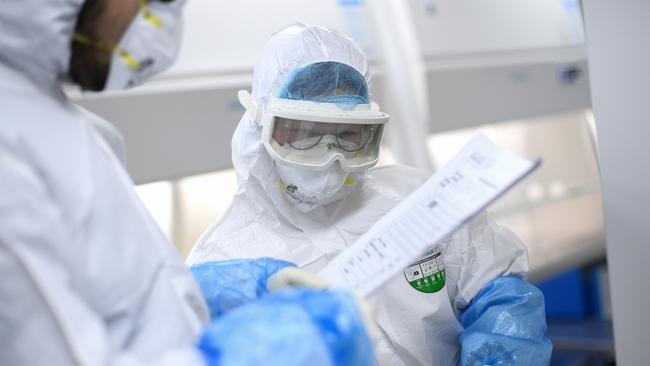Coronavirus: Putting lid on coronavirus outbreak not so simple as SARS
The spread of the coronavirus around the world will be much harder to contain than the SARS epidemic 17 years ago.

The spread of the coronavirus around the world will be much harder to contain than the SARS epidemic 17 years ago, according to a world-leading microbiologist who has told countries outside China to brace for deaths.
Neil Ferguson, director of Imperial College London’s MRC Centre for Global Infectious Disease Analysis, said infected people who were displaying mild symptoms were likely to be mainly responsible for the spread of the virus in China.
He estimated only 10 per cent of cases of the coronavirus were being detected in China, and only a quarter of cases in countries around the world.
“We estimate that there are maybe up to 50,000 new infections a day occurring in China, which is much larger than the official case numbers,” he said.
“As to the overall effectiveness of control measures, it’s hard to evaluate. If there’s a lot of community transmission going on, which I think there is, it will be very hard to control this epidemic in the same way as we controlled the SARS epidemic.
“Identifying as many cases as possible, as early as possible … and isolating them is how we managed to control the SARS outbreak.
“Whether those measures will be as effective in this case remains to be seen. This virus has a much wider range of severity of symptoms.
“Quite a lot of people are being infected that might have quite mild respiratory disease, may not even seek healthcare for it. If those people are transmitting, then it will be hard to stop transmission overall.”
There have so far been only two deaths from coronavirus outside mainland China, one in The Philippines and one in Hong Kong. But Professor Ferguson said that number would grow in coming weeks.
“People with severe cases will be in intensive care maybe for weeks,” he said.
“We think the delay from when somebody develops symptoms to when they might die is as long as 20 days or longer.
“So the fact we haven’t seen many deaths in travellers outside mainland China so far is not terribly reassuring.”
The comments came as the federal government released its first weekly epidemiology report on the coronavirus. The report revealed of the 12 cases diagnosed in Australia up to last Saturday, three-quarters had been treated in hospital. All cases reported fever, and the majority also experienced coughing. Two cases resulted in pneumonia, and one case required admission to ICU.
All Australian cases acquired the infection in China. Eleven had been in Wuhan, and the others had close contact with an infected person from Wuhan. The ages of the Australian coronavirus sufferers ranged from 21 to 66.
The World Health Organisation has set up specialised referral laboratories around the world with expertise in the molecular detection of coronaviruses. There are concerns that if the virus spreads to some developing nations, they will not necessarily be picked up, due to limited testing capacity.




To join the conversation, please log in. Don't have an account? Register
Join the conversation, you are commenting as Logout